#coastal fish
Explore tagged Tumblr posts
Text



Pucker Up for the Sea Lamprey!
The sea lamprey (Petromyzon marinus), also known as the vampire fish, is the most famous member of the order of lampreys, Petromyzontiformes. Despite their similar appearance to eels, lampreys are actually jawless fish, and are more closely related to hagfish than eels. To add further confusion, sea lampreys actually reproduce in freshwater rivers and streams, and are only found in the ocean as adults. They are spread along the Atlantic coasts of North America and Europe, as well as the Mediterranean and Black Sea.
Sea lampreys are the largest member of the lamprey family, at an impressive 30 to 100 cm (11.8 to 39.4 in) long and weighing around 2.5 kg (5.5 lbs). They are generally olive or brownish grey, and their bodies are long and smooth. Perhaps P. marinus' most distinctive feature are their mouths, which are wide and circular with teeth arranged in a circle around the tongue and throat. When opened to attach to its prey, the mouth can stretch larger than the lamprey's head.
Vampire fish are widely known for their feeding habits. Adults are parasites that attach themselves to the sides of fish and feat on their victim's blood and tissue. But despite their fearsome appearance, P. marinus has a variety of predators as both juveniles and adults, including sturgeon, catfish, sea lions, seals, sea birds, and northern pikeminnows. Juveniles are particularly vulnerable, as they are smaller and, as deteriorates, are not equipped with the sharp teeth of adults.
Like many other fish, sea lampreys are anadromous, meaning they migrate from salt to freshwater to reproduce. From April to June, males and females travel up river to find rocky beds in which to build nests. Females lay anywhere from 30,000 and 100,000 eggs in their nest, which are then fertilized by multiple males. After mating, both parents die. The larvae take 3 to 8 days to hatch, and the young spend the next 1 to 3 years filter feeding in their home river. Once they reach maturity, they migrate back to the ocean, where they can reside for up to 5 years before returning to their spawning grounds to complete their lifecycle.
Conservation status: The IUCN has rated the sea lamprey as Least Concern. This species is invasive in the Great Lakes region of the United States. However, within its native range it is threatened by habitat degradation and over-fishing.
Photos
Paul Wilson
U.S. National Park Service
Sean Landsman
#sea lamprey#Petromyzontiformes#Petromyzontidae#lamprey#jawless fish#fish#marine fauna#marine fish#coasts#coastal fish#rivers#river fish#atlantic ocean#north america#eastern north america#europe#western europe#mediterranean sea#animal facts#biology#zoology#ecology
145 notes
·
View notes
Text

Matinicus Rock Light, Penobscot Bay, Matinicus, Maine. Hunting and eating puffins was common practice in Maine over 100 years ago. The first lighthouse keepers on the rock were also wardens, hired by The American Ornithologists Union. They were tasked with protecting The United State's last remaining pair of Atlantic puffins, as well as many other commonly hunted seabird species. Today, Matinicus Rock is owned by the U.S. Fish and Wildlife Service's Maine Coastal Islands National Wildlife Refuge, and is cooperatively managed by the National Audubon Society and MCINWR. Thanks to their work and the work of Project Puffin, there are over 500 pairs of nesting puffins, plus 400 pairs of razorbills, 1,000 pairs of terns, about 700 pairs of laughing gulls, and more.
#Matinicus Rock#Matinicus Rock Light#Penobscot Bay#Matinicus#Maine#lighthouse#maine#maine lighthouse#nesting colony#puffin#puffins#breeding colony#puffin colony#us fish and wildlife#MCINWR#Maine Coastal Islands National Wildlife Refuge#wildlife#wildlife refuge#maine landmark#illustration#art#jada fitch#maine art#maine island#maine islands#drawing#design#maine birds#birds#sea birds
441 notes
·
View notes
Text

Blackened Fish Tacos
Full Recipe: durl.ca/CGQNm
#tacos#fish tacos#seafood#fish#blackened fish#pico de gallo#cilantrolime#lime#red cabbage#coastal#mexican food#toya's tales#style#toyastales#toyas tales#october#brunch#munchies#lunchtime#healthy lunch#lunch recipes#lunch#dinner#game night#taco tuesday#fall#cooking#eating#kitchen#home
129 notes
·
View notes
Text
Summer 24' 🕰🌾🖋
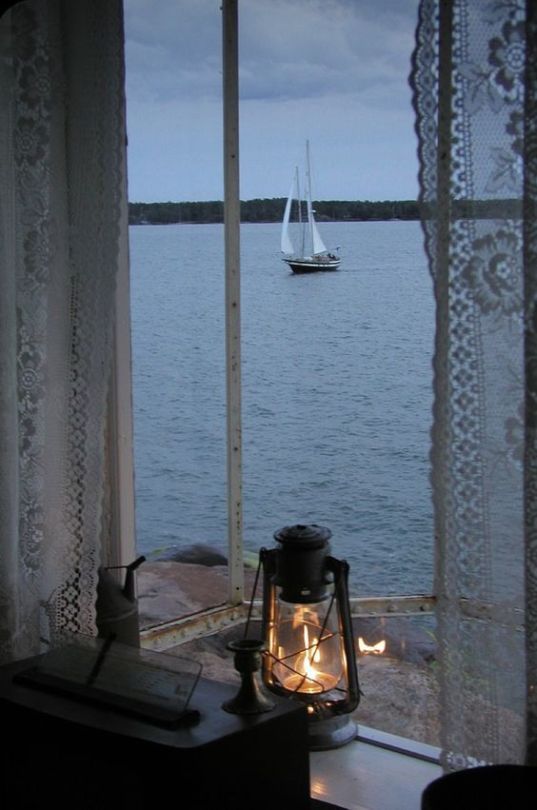
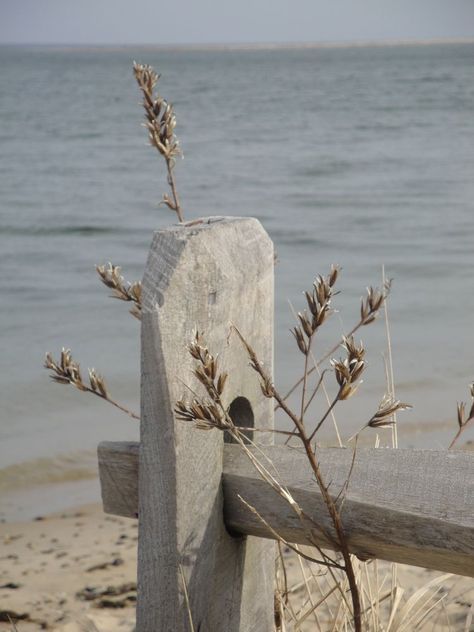
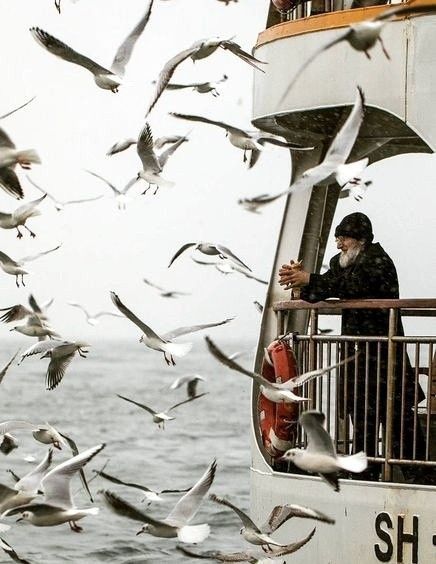
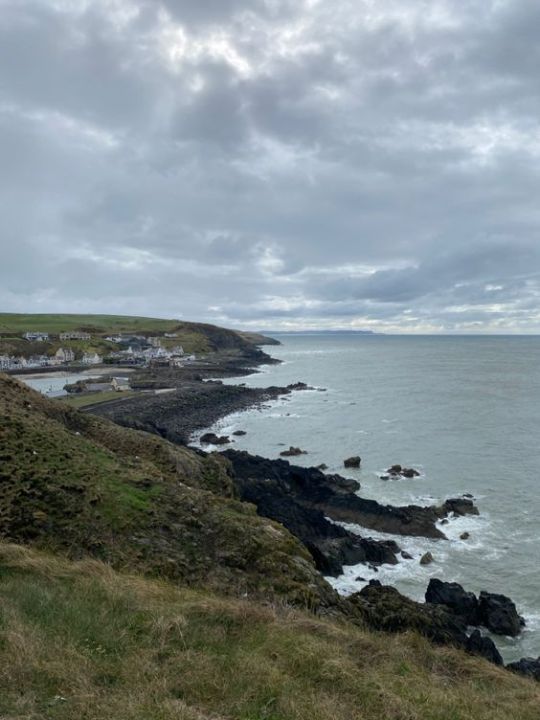
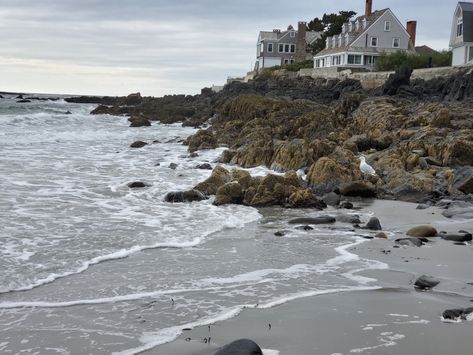

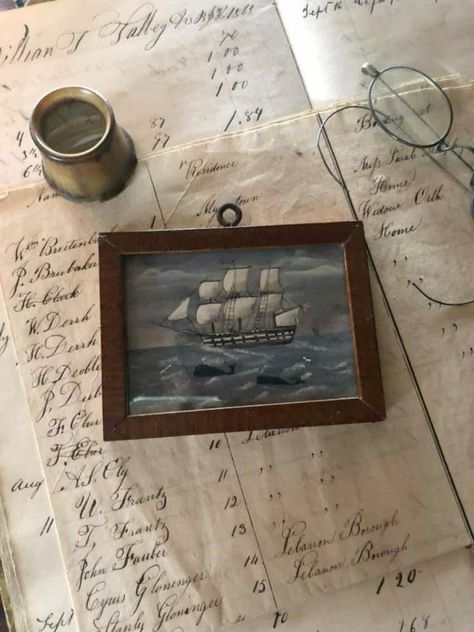
#sea shanties#dark nautical#dark nautical aesthetic#a well traveled woman#cottage by the sea#lighthouse keeper#moodboard#seaside village#eastern shore#seaside towns#british seaside#coastal towns#harbor town#seaside village aesthetic#fishing villages#robin hoods bay#beach village#vintage fashion#vintage gothic#seaside gothic#girlhood
180 notes
·
View notes
Text
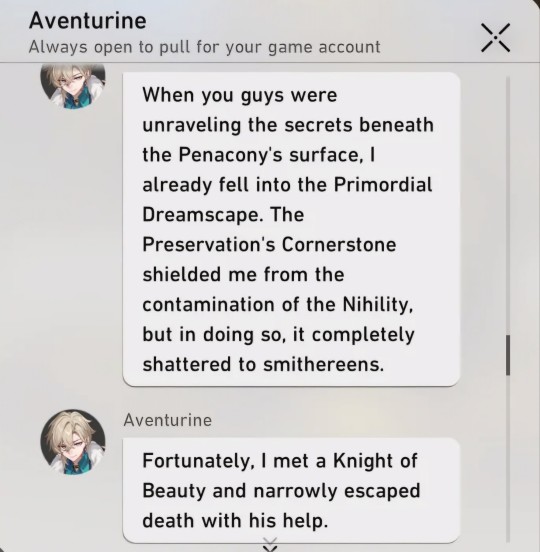
Every time I see another post or fic describing Argenti "saving Aventurine from the Nihility," the cranky lore-bird that lives inside the cage of my body cockatoo-screams in unbridled despair.
Who can I pay to remind the entire fandom overnight that the "Primordial Dreamscape" and the shadow of Nihility are not the same place?
The Aventurine Cornerstone protected Aventurine to the bitter end and saw him--in apparently barely coherent and very poor condition, admittedly--free of IX's shadow. We have no evidence at this point that Argenti ever encountered IX. All he says is that he discovered Aventurine in a sorry state and helped him out; zero mention of, you know, an entire other aeon.
We know from Acheron that to encounter IX is essentially impossible without contact with a Nihility emanator or falling into an existential despair so deep that you cannot return from it on your own, because IX does not gaze on anyone. While I don't think that Argenti is actually a very happy person, there's also absolutely no indication that he would abandon all his sense of purpose and meaning in pursuing Idrila to surrender to Nihility.
It is extremely likely if not already confirmed that Argenti did not rescue Aventurine from the Nihility; he rescued him from the Primordial Dreamscape (aka Dreamflux Reef and its surrounding Sea of Memoria).
Please, please, who can I pay to not have to see "Argenti was in the Nihility" anymore?
#honkai star rail#aventurine#argenti#the nihility#Penacony#HSR 2.2#this is a hill I will die on#until the game shows me a cutscene of Argenti in the Nihility#he was not there#it does not make sense in-character for him to be able to encounter Nihility#his very philosophy runs entirely counter to what Nihility IS at its deepest#he fished Aventurine out of the Sea of Memoria coastal memory waters#using his spear as the fishing tool#this is what actually happened#I promise lol
131 notes
·
View notes
Text

The Night by Claude-Joseph Vernet
#claude joseph vernet#joseph vernet#art#coastal#coast#night#moonlight#seascape#moon#full moon#moonlit#sea#ship#boat#boats#romantic#sky#clouds#evening#europe#european#fire#cooking#fishing#ocean#mediterranean#fisherman#fishermen#fish#dog
155 notes
·
View notes
Text

a Guy i made as a color test
i was a fool to think it would stay a sketch :')
(based off of this critter, the candy darter fish)

#the gummiest fish i ever did lay my eyes upon for certain and no doubt#but yeah no i think SeaWings should come in more colors than just blues and greens honestly#at least the more coastal ones anyway#but yeah if you're wondering why this piece looks so different from my others#it's because i was hit over the head with a new Lighting Method hhh#plus i also had an actual reference for this one so there's that too ig#wings of fire#seawing#fiendish illos#fish#gosh i love fish#anyway
34 notes
·
View notes
Text
This little oil pastel painting of sardines was added to my shop just last week. I'm experimenting with this medium, which I have really only used for landscape and flowers before now.

#Sardines#Fish#Ocean#Fish Lover#fishes#Coastal Decor#Original Art#Drawing#Pastel Painting#Oil Pastels#Pastel Art#Painting#Artwork#Traditional Artist#Shop Indy#Gift Ideas#Art Shop
32 notes
·
View notes
Text

Fishing boat with orange sail at sea - Léon Spilliaert
Belgian , 1881-1946
Watercolour on paper , 47 x 74 cm.
67 notes
·
View notes
Text
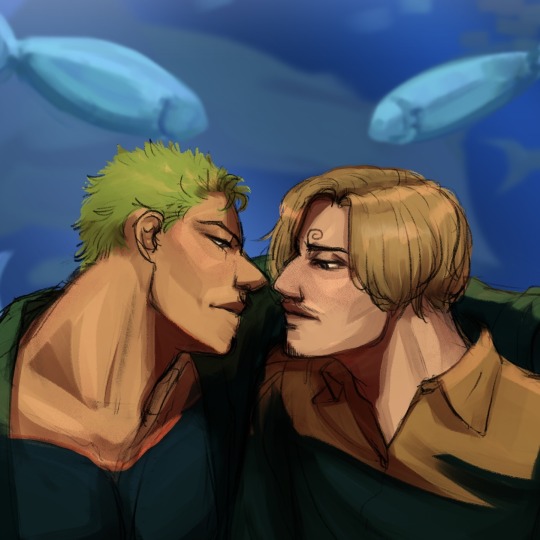
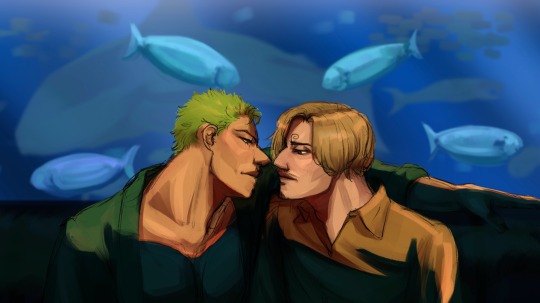
guys being dudes but with fishies 🐟🐠🐡🦈

i liked the lines a lot for this! i've been trying to get myself to treat digital art like sketching in a sketchbook recently and these lines really reflect that. i didn't go into this with any kind of plan aside from "oooooo aquarium bar" which backfired on me in a couple of ways lmao but 🤷♂️
#my art#one piece#zosan#fun fact i am a fish hater (organism + culinary application)#i am also an ocean hater and a beach hater#i'm a real poser of a coastal denizen#'how can you be a beach hater 🥺' quite simple! the beaches where i grew up are certifiably the nastiest on the planet
91 notes
·
View notes
Text





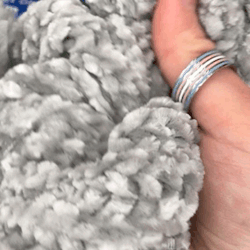


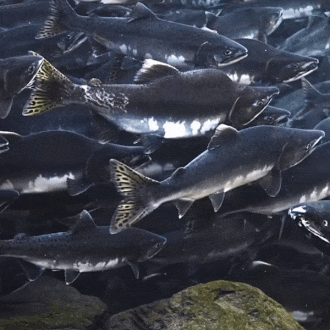
Coastal wolf stimboard with soft textures, fish, and rain for @canidhearted , hope you enjoy!
🐺🐟🐺/🐟🐺🐟/🐺🐟🐺
#coastal wolf therian#coastal wolf#coastal wolf stim#coastal wolf stimboard#wolf#wolf stim#wolf stimboard#kin stimboard#grey#grey stim#gray#gray stim#fish#fish stim#salmon#salmon stim#fur#fur stim#crochet#crochet stim#fabric#fabric stim#nature#nature stim#rain#rain stim#water#water stim#animal#animal stim
250 notes
·
View notes
Text
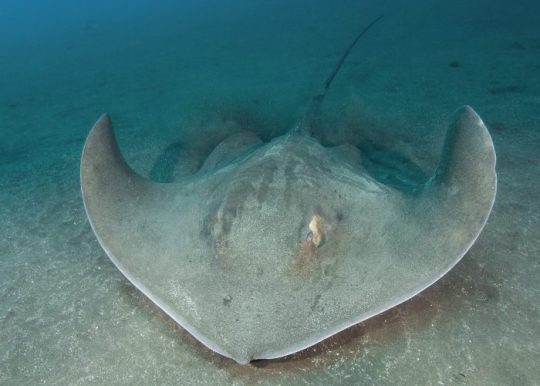

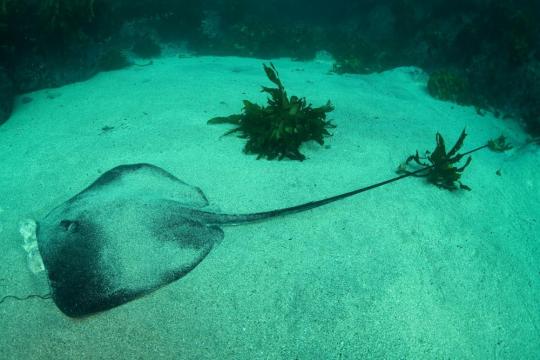
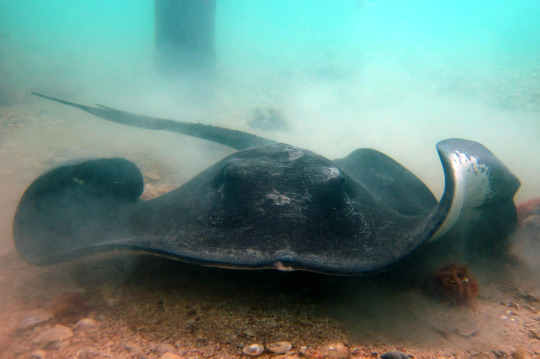
A Stingray Abroad: The Broad Stingray
Bathytoshia lata is a stingray known by many names: the broad stingray, the brown stingray, and thorn tail stingray; Dasyatis lata, Dasyatis thetidis, and Dasyatis ushii. The species has accumulated all these names-- and quite a few others-- thanks to its broad distribution. It can be found in the Atlantic, Pacific, and Indian Oceans, as well as the Mediterranean sea. Typically the species stays on reefs or in coastal bays with muddy bottoms. Prior to 2012, genetic testing of stingray species revealed them to be populations of B. lata, hence the multitude of latin names.
The broad stingray is one of the largest species of stingrays; the average individual is about 1.5 m (5 ft) across and 56 kg (123 lb), with some populations reaching an excess of 2.6 m (8.5 ft) across and 290 kg (639 lbs). Females also tend to be larger than males. The body is diamond shaped, and the tail is often more than twice its length. B. lata is dark in color, often tan or black, with a white underbelly. Perhaps its most distinctive feature are the 'spines'-- also known as dermal denticles-- that line the tail and rear portion of the body, giving it the name 'thorn tail'.
The brown stingray is fairly docile, and spends most of the day lying inactive on the sea bed. At night they forage for crustaceans, polychaete worms, and small fish. They can use their powerful pectoral fins to burrow through the sand and uncover prey, and like sharks they have special organs called ampullae of Lorenzini that allow them to detect electrical fields emitted by their prey. The primary predator of B. lata is the hammerhead shark, and when threatened individuals will raise the spines along their tail to deliver whip-like blows.
Females become ready to mate in the summer, typically from November to March. Males are attracted to pheromones released by the female, and initiate a dance-like courtship ritual. If the female is receptive, he will bite down on her pectoral fins while grasping her with special claspers located at the base of the tail. Following the mating ritual, the female gestates her young internally for 10-12 months. This species is ovoviviparous, and the pups recieve nutirents from both a yolk and internally secreted milk. Following her pregnancy, the mother gives birth to live young, typically 3-4 in a litter. The pups are completely independent, and receive no parental care after being born. It takes them about 14-16 years to become fully mature, and individuals can live up to 28 years in the wild.
Conservation status: The broad stingray is considered Vulnerable by the IUCN. Its most common threat comes from being caught as by-catch in fishing nets, and intentionally for their meat and skin.
If you like what I do, consider leaving a tip or buying me a kofi!
Photos
Andy Murch
Sarah Speight
Andrew Green
Phillipe Guillaume
#broad stingray#black stingray#Myliobatiformes#Dasyatidae#whiptail stingrays#stingrays#rays#cartilaginous fish#fish#marine fauna#marine fish#coral reefs#coral reef fish#benthic fauna#benthic fish#coasts#coastal fish#Atlantic Ocean#Indian Ocean#Pacific Ocean#Mediterranean sea#animal facts#biology#zoology#ecology
97 notes
·
View notes
Text

Egg Rock Light, Frenchman Bay, Winter Harbor, Maine. Until the lighthouse was built in 1875, Egg Rock was known for its massive amount of sea bird nests. Today ownership belongs to the U.S. Fish & Wildlife Service, and is managed as part of the Maine Coastal Islands National Wildlife Refuge. If you're boating about the Bar Harbor area, be sure to be on the look out for the numerous harbor seals and black guillemots that are usually loitering around the lighthouse today.
#Egg Rock Light#Frenchman Bay#Winter Harbor#Maine#Bar Harbor#Egg Rock Lighthouse#Egg Rock#illustration#art#drawing#lighthouses of maine#Maine lighthouse#seals#harbor seal#black guillemot#guillemot#Maine Coastal Islands National Wildlife Refuge#us fish and wildlife service#nature#wildlife#animals#house#island#maine life#island life#seabirds#gull rock
53 notes
·
View notes
Video
Near miss by Terry Allen Via Flickr: It was fun to watch the Kermode bears (spirit bears, a rare white genetic variant of black bears) fishing for salmon in a creek on Gribbell Island, on north coastal British Columbia. They can only be seen in a very small area of the BC coast and occur nowhere else in the world. The bears gorge during the fall when the salmon swim up the streams to spawn and this guy had just missed catching a salmon that was swimming by. 17/12/2018 www.allenfotowild.com
#Kermode_bear#Ursus_americanus_kermodei#spirit_bear#white_bear#rare#genetic_variant#fishing#salmon_stream#splashes#forest#fall_season#near_miss#Gribbell_Island#coastal#British_Columbia#travel#nature#salmon_run#flickr
35 notes
·
View notes
Text

Maine.
#Maine#boating#fishing#scenic#coastal#east coast#ocean#beach#waterfront#vacationland#summer#flowers#photography#nature#photographers on tumblr#new england#beautiful#marina
43 notes
·
View notes
Text
one of my sonas, harbor !! hy's my little guy






... detours were taken.
#otherkin#alterhuman#therian#original art#canine therian#caninekin#sea wolf therian#coastal wolf therian#furry art#furry oc#furry artist#sfw furry#fursona#anthro art#sfw anthro#wolf furry#wolf fursona#fish furry#fish fursona#i foind fishe !!!!!
74 notes
·
View notes